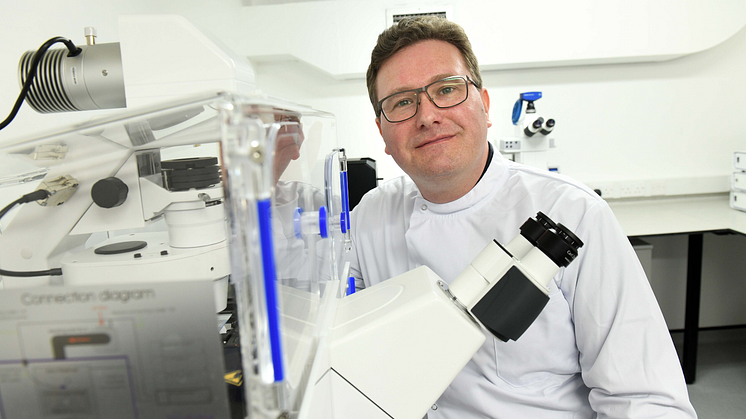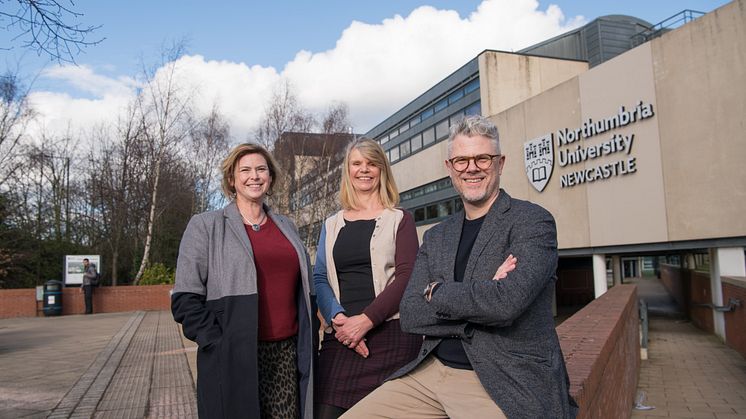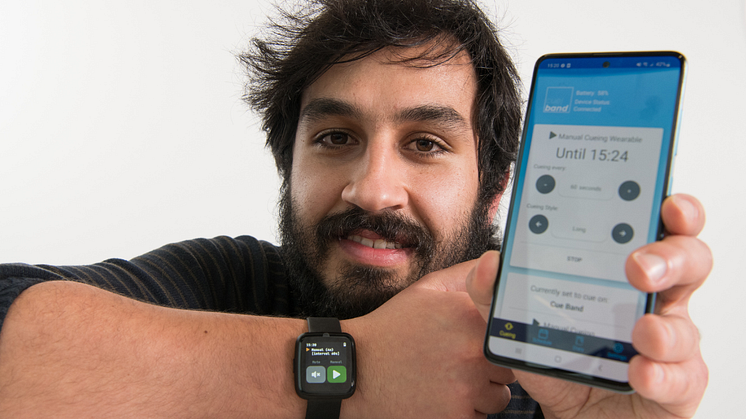
Press release -
Research funding gives hope for sight loss breakthrough
A team of scientists led by a Northumbria University academic has won funding to research an eye disease suffered by over 190 million people worldwide.
The award, from the Academy of Medical Sciences’ Springboard scheme, will help fund ground-breaking techniques to study age-related macular degeneration (AMD), a common disease that affects vision, particularly in the elderly.
It is believed that the research, led by Dr Gerrit Hilgen, Assistant Professor in Northumbria’s Department of Applied Sciences, has the potential to lead to new treatments for AMD and could also help develop new and faster ways to diagnose and prevent the condition.
The macula is part of the retina at the back of eye that allows you to see fine detail and is responsible for our central vision. Macula cells can deteriorate for a number of reasons, the most common being ageing, but smoking, poor diet, high blood pressure and genetic history can all play a part too.
The risk of developing advanced age-related macular degeneration increases from 2% for those aged 50-59, to nearly 30% for those over the age of 75. In 2020, the condition was believed to affect more than 190 million people globally and this figure is expected to rise to 288 million people by 2040 as the elderly population increases.
The symptoms of AMD include blurred vision, difficulty seeing in low light, and seeing straight lines as wavy. The condition can develop slowly over several years or can develop very quickly. To date, there is no cure.
The funding of £100,000 will support the study into the causes of AMD at a cellular level. The research team will examine human induced pluripotent stem cell (iPSC) AMD models. PSCs are lab-created cells that can be used to generate any type of human cell required for therapeutic purposes.
In addition, cells can be created at different stages of development. This allows researchers to study the development of diseases and the effects of treatment at different stages.
Dr Gerrit Hilgen, Assistant Professor in Neuroscience, said: “Our project is at the forefront of discovery and translational science. It uses innovative techniques of human iPSC models of AMD disease and a cutting-edge multidimensional approach.
“This award will help us study the different types of cellular mechanisms in human iPSC models of AMD, and how they work together. This will help us better understand AMD as well as find new ways to treat the disease.”
Dr Hilgen’s team includes colleagues from Northumbria University, and researchers from Newcastle University, and the University of Tuebingen in Germany.
The Academy of Medical Sciences’ Springboard scheme offers a bespoke package of support to biomedical researchers at the start of their first independent post to help launch their research careers.
Professor Dianne Ford, Pro Vice-Chancellor of the Faculty of Health and Life Sciences at Northumbria University, said: “These awards are highly competitive and prestigious. The fact that Gerrit has secured this award is testament to the excellence of his research and clear future promise to become a leader in his field, as well as to the quality of the environment we offer at Northumbria for developing researchers. As Northumbria University’s Springboard Champion, I look forward to supporting the progress of Gerrit’s research, as well as that of our other talented researchers applying in the next and future rounds.”
Dr Suzanne Candy, Director of Biomedical Grants & Policy at the Academy of Medical Sciences, said: “Together with our partners, we are fortunate to be able to support this talented group of researchers doing excellent science. Our strategic ambition is to help create an open and progressive research sector. By investing in these individuals and teams, we are broadening the range of people and disciplines engaged in biomedical and health research, across all regions of the UK, and globally.
“We look forward to supporting our award recipients and seeing how their research has a positive impact on the health of people everywhere.”
Recently named Times Higher Education (THE) University of the Year, Northumbria University has announced ambitious plans to develop its Centre for Health and Social Equity, bringing together academics working on health, social care, education, wellbeing and equity issues onto one central base in the heart of Newcastle, on the University’s City Campus.
-ENDS-
Topics
Categories
UNIVERSITY OF THE YEAR 2022 (Times Higher Education Awards)
Northumbria is a research-intensive university that unlocks potential for all, changing lives regionally, nationally and internationally. Find out more about us at www.northumbria.ac.uk
--- Please contact media.communications@northumbria.ac.uk with any media enquiries or interview requests ---












